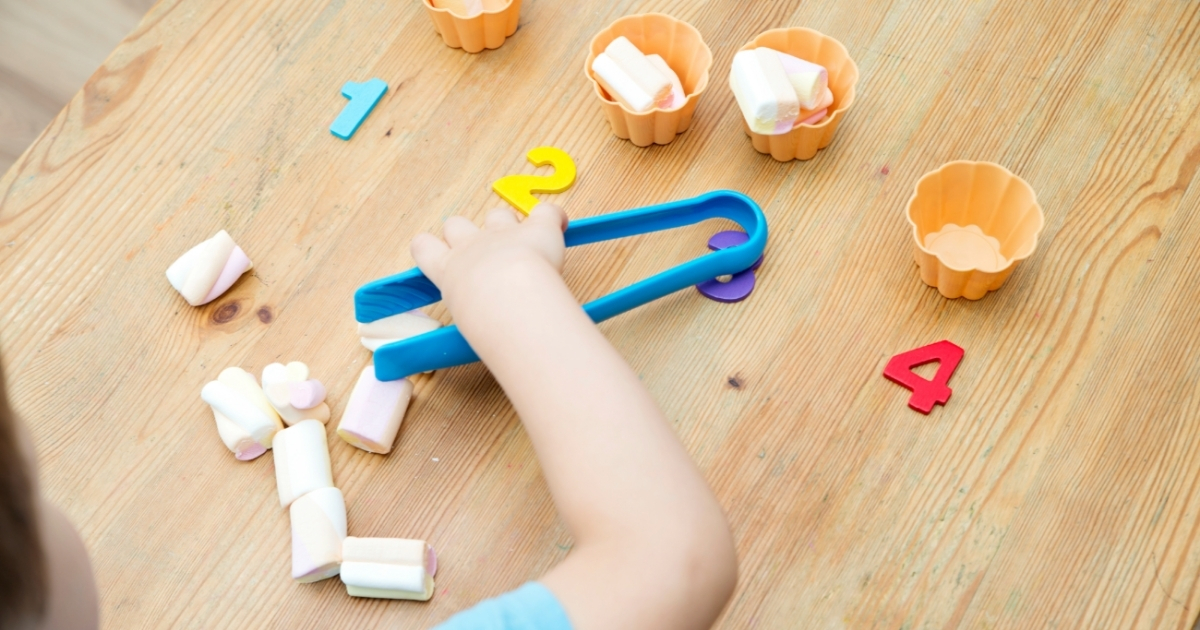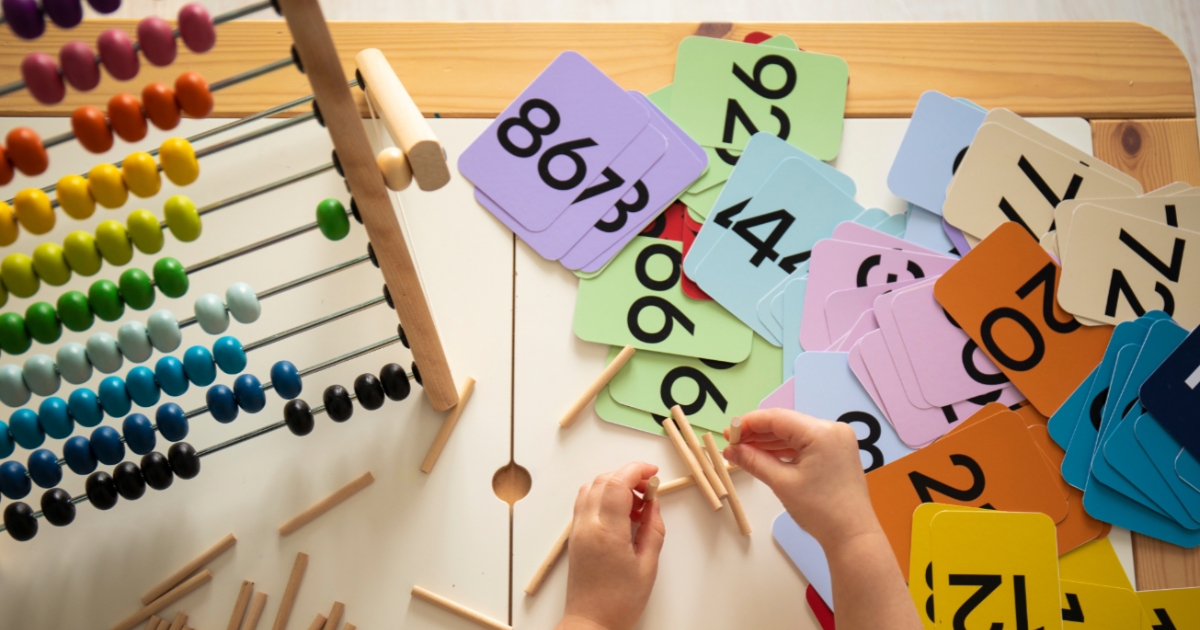Math can be both exciting and educational when presented in the right way. For homeschooling parents, creating lessons that are engaging yet aligned with the curriculum can feel challenging, especially for grades 3 and 4, where children are developing more complex mathematical skills. Below, we’ll explore practical games, activities, and strategies that turn math lessons into fun, interactive experiences. These ideas will help you incorporate math concepts into everyday learning, ensuring your child builds essential skills while enjoying the process.
Interactive Math Games To Play At Home
Playing games can be an excellent way to teach math while keeping your child motivated. Here are some tried-and-tested ideas:
- Multiplication Bingo
Create bingo cards with multiplication problems instead of numbers. For instance, a box might say “3 x 4.” Your child must solve the problem and mark the answer on their card (e.g., 12). This builds speed and accuracy with multiplication tables. - Fraction Pizza Game
Cut out circles from construction paper to resemble pizzas, then divide each pizza into different fractional slices (e.g., halves, thirds, quarters). Ask questions like, “What’s 1/2 of this pizza?” or challenge kids to combine fractions to make a whole. - Math Scavenger Hunt
Write math problems or clues on cards and hide them around the house. Each solved clue leads to the next, and the final clue reveals a hidden surprise. Include challenges like addition, subtraction, or puzzles requiring multiplication. - Card Games With Math
Use a standard deck of cards to create math challenges. For example:- Play “War” with addition or multiplication. Each player draws two cards, performs the operation (e.g., 5 + 3 = 8), and the higher total wins.
- Or, set up a game of “21” where players draw cards to reach a total close to 21 using addition or subtraction.
- Decimal Dice
Roll two dice to generate decimal numbers, then add, subtract, multiply, or divide. You could also turn this into a friendly competition to see who solves the problems faster.
These games emphasize fun while reinforcing critical math concepts, making lessons feel less like work and more like play.

Hands-On Activities To Build Math Skills
Most kids learn best when they can see and touch what they’re learning. Using hands-on activities in your homeschooling can make abstract math concepts more concrete and easier to understand.
Measuring and Estimation
Introduce your child to real-life applications of math through measuring and estimation activities:
- Baking With Measurements
Have your child help you measure ingredients for recipes. Ask questions like, “If we need 1/2 cup of sugar, but we only have a 1/4 measuring cup, how many times will we need to fill it?” - Room Measurements
Give them a tape measure to calculate the dimensions of furniture or the room. Challenge them to calculate areas by multiplying length and width. - Guess and Test
Fill containers with small objects like marbles or beans and ask kids to estimate the count before they measure or calculate the actual number.
Geometry Fun
Geometry is ideal for hands-on learning:
- Using paper or cardboard, have your child cut out and assemble 3D shapes like cubes, pyramids, and cones. Discuss edges, faces, and vertices.
- Create a “shape hunt” around the house where your child identifies objects and matches them to their geometric forms (e.g., spheres, rectangles, cylinders).
Time Telling and Scheduling
Time concepts can be included in daily routines:
- Use an analog clock to teach your child to tell time. Have them calculate elapsed time during activities or tasks (“How many minutes until dinner?”).
- Help them plan their own daily schedule, dividing it into time blocks and calculating how much time each activity should take.
These hands-on activities provide a practical, interactive foundation, helping your child apply math in real-life situations.
Technology And Apps For Math Practice
Technology can be a fun and effective tool for engaging kids in math. There are countless apps, websites, and online games designed to help children in grades 3 and 4 sharpen their math skills in an enjoyable way.
Recommended Math Apps
- Prodigy Math Game
A fantasy-style adventure game where solving math problems helps your character advance. It aligns with Common Core standards for grades 1–8 and keeps kids looking forward to “leveling up.” - Khan Academy Kids
A treasure trove of lessons and practice exercises across various topics. It’s an excellent platform to strengthen concepts at your child’s own pace. - SplashLearn
This app offers games, quizzes, and rewards for success. It focuses on skills such as addition, subtraction, and fractions tailored to specific grade levels.
Interactive Websites
- CoolMath4Kids
Featuring puzzles, brainteasers, and interactive lessons, it’s a fun site to work on everything from counting to algebra. - Math Playground
A wide range of logic and problem-solving games helps kids stay sharp while gaining confidence in their abilities.
Interactive tools like these complement manual activities by giving children a variety of ways to engage with math. The visual and interactive components, paired with rewards or feedback, can make math both captivating and educational.
Engaging Math Lessons Without Games
Sometimes, you can teach math effectively through structured lessons. These lessons can still be fun without needing to use games or activities every time.
Try an approach that integrates exploration and critical thinking. For example, when teaching multiplication, show your child how it applies to real-world patterns. If you plant 3 rows of 4 flowers in a garden, how many flowers are there? Kids love seeing how math exists all around them.
Similarly, storytelling and word problems can be fantastic tools. Imagine creating a story like this with your child: “A zoo has 15 penguins. Five of them love to swim. What fraction of the penguins prefer swimming?” Such stories encourage kids to picture math in relatable ways.
While exploring fractions or areas, use visual aids. Fraction strips, pie charts, or grid paper can illustrate concepts clearly. If your child is struggling, take the time to work through ideas step by step. Mixing visuals with verbal explanations ensures the lesson sticks, especially for more abstract topics.
These kinds of structured but approachable lessons set a strong foundation for more advanced concepts down the road.
Making Math a Family Affair
One of the simplest ways to make math engaging is by modeling enthusiasm for it as a family. Homeschooling provides the perfect setting to involve everyone in math activities. Turn math into a group event where siblings, parents, or even grandparents participate.
You could start by:
- Playing family math board games like Monopoly or Yahtzee, where skills like money management and probability come into play.
- Hosting a “Math Challenge Night” with timed problem-solving competitions. Offer small rewards for solving puzzles or challenges quickly.
- Exploring math outdoors together. Count trees on nature walks or estimate how tall they are. Discuss patterns you see in nature, like symmetry in leaves.
When your child feels supported and sees math as part of family fun, they’re more likely to develop a love for the subject.
Math doesn’t have to be dull or difficult. By blending play, practical skills, and real-world connections, you can give your homeschooler engaging and memorable math experiences. Try these ideas, adjust them to your family’s preferences, and watch math come alive for your grades 3 and 4 learners.



